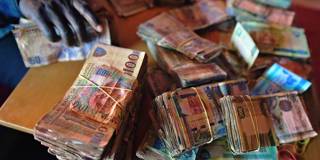Can a West African Currency Union Work?
The eurozone’s experience showed how unruly currency unions can be, and how important it is to continue experimenting and adapting. A currency union comprising the 15 members of the Economic Community of West African States will be no different – but that doesn't mean it can't work.

YAOUNDÉ – The 15 countries of the Economic Community of West African States have agreed to adopt, as of next year, a new shared currency, the “ECO.” But, as the eurozone’s experience has shown, currency unions can be unwieldy. Creating a successful one will require the ECOWAS countries to overcome serious challenges.